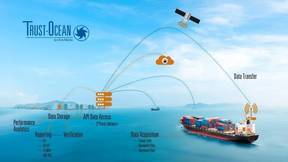Mexico wants to continue fuel imports after delays in refineries
M exico wants to import more motor oil than originally planned for the next year to compensate for delays with its new Olmeca refining plant, according to a half dozen traders, marking a U-turn from state energy company Pemex.
The purchases made for next year indicate that the refinery will not be ready anytime soon. This is a blow to the legacy of the outgoing president Andres Manuel Lopez Obrador who had commissioned the refinery after his election in 2018. He did this as a way to wean Mexico off costly imports.
Pemex is the most indebted company among its peers. It is a major producer of crude oil, but it relies heavily upon gasoline and diesel imported from other countries because its six aging refineries are unable to process heavy Maya crude. Instead, they produce record amounts fuel oil.
Earlier this year, Pemex had indicated to suppliers that it planned to significantly cut imports of both fuels because the 340,000-barrel-per-day (bpd) refinery would finally work at capacity, the market sources said.
Last month, it was revealed that engineers are still working on some key components, more than two years since the refinery's opening.
International Energy Agency, based in Paris, was also sceptical. The International Energy Agency, based in Paris, was also skeptical.
Pemex did not specify how much it had planned to reduce imports in the future. Pemex didn't respond to our request for comment.
The traders reported that Mexico has now returned to the market in search of deals that will guarantee fuel supply for the remainder of this year and into next. It has also made inquiries across Asia and the U.S.
A trader from a large commodity firm said that Pemex traders were looking for similar volumes as those previously imported. Another U.S.-based broker working for a major refiner in Latin America confirmed this.
Two Asian traders reported that they have made inquiries to Chinese refiners over the past two week, but there have not been any deals made.
The new deals for 2025 supply contradicted what Pemex CEO Octavio Romero said earlier in the month - that Mexico will drastically reduce imports of fuels over the next few months.
He said that the Olmeca refinery will be operational in a few days. He added that the new coking units at the Tula refinery and Salina Cruz will boost production to levels above national demand. Pemex, too, would enjoy a surplus.
Official data revealed that in the first five month of the year Pemex produced 181,565bpd diesel and 306,547bpd gasoline at its six refineries. It imported 358.545 bpd gasoline and 128,215bpd diesel.
SPOT BUYING IN DELAY
Three Mexican traders say that if the new refinery does not work at full capacity, it could lead to a fuel shortage in the next year, which would be embarrassing for the government and the incoming president Claudia Sheinbaum.
Pemex, the government and other stakeholders have delayed the start-up date of the refinery. The cost has increased by more than a dozen fold to approximately $17 billion in the last few years.
Mexico imports the majority of its fuels primarily from the U.S. because shipping from Asia is slower and more expensive. However, price variations in Asia may make arbitrage economically viable.
The traders said that Pemex purchased at least three spot loads for early August loading gasoline cargoes around 300,000 bbls each from Asia in the last week, likely from China or Singapore, as arbitrage economics are lucrative.
Shipping cargos from Northeast or Southeast Asia to Mexico under a contract term would be more difficult, as the arbitrage has to be profitable for the entire period.








